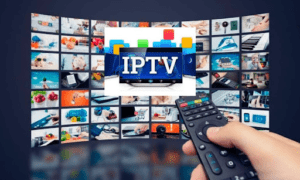Over the past decade, television has seen a significant shift in technology and consumption patterns. One of the most influential changes has been the rise of Internet Protocol Television (IPTV), a digital television broadcasting system that operates over the internet. This article delves into the world of IPTV, its benefits and trends, and how businesses can leverage this technology to stay ahead in the increasingly competitive media landscape.
Understanding IPTV Basics
Internet Protocol Television (IPTV) is a system where television services are delivered through internet protocol networks instead of traditional terrestrial, satellite or cable television formats. IPTV services utilizes your existing internet connection to provide you with streaming video services, including live channels, on-demand content, and media management features. This system uses digital signals and two-way broadband communication, ensuring high-quality streaming and personalization options for users.
Why IPTV is Gaining Popularity
IPTV has seen a surge in popularity, and there are several reasons for this. One primary reason is greater control and flexibility for users. IPTV allows users to consume content whenever they want and through various devices, including laptop computers, mobile phones, smart TVs, and tablets. The use of internet protocol also allows for integration with other internet services, expanding the potential of IPTV in terms of user experience and interactivity.
Another factor driving IPTV popularity is cost-effectiveness. Many IPTV services offer lower subscription prices compared to traditional cable or satellite TV services. Additionally, this technology eliminates the need for satellite dish equipment, leading to lower installation and maintenance costs.
IPTV Benefits for Consumers
For consumers, IPTV brings numerous benefits. As mentioned earlier, IPTV offers a more flexible and personalized watching experience, with access to vast amounts of content anytime and anywhere. Users can also enjoy better picture and sound quality due to the digital nature of the service. Moreover, IPTV provides features such as video on demand (VOD), time-shift TV, and other interactive services that were not possible with traditional television broadcasting systems.
Emerging IPTV Business Models
Television service providers are increasingly adopting IPTV technology and exploring new business models. Some popular IPTV business models include:
1. Subscription-based: Users pay a monthly fee for access to an IPTV service providers content library, including live channels and on-demand programming.
2. Pay-per-view: IPTV service providers promote certain programs, events, or channels on a pay-per-view basis where users pay only for the content they consume.
3. Advertising-supported: Some IPTV services provide free or low-cost content in exchange for advertising revenue generated from displaying ads during programming.
Challenges and Concerns with IPTV Services
Despite the numerous benefits of IPTV services, various challenges remain. One of the most significant concerns revolves around content piracy, which has flourished with the rise of IPTV. This illegal distribution of content harms content creators and providers who invest in producing and licensing quality programming. As a result, industry stakeholders are working together to improve content protection mechanisms and address copyright infringement.
Another challenge is ensuring a reliable and high-quality user experience. For IPTV services to compete with traditional television systems, providers must ensure that their services are free from buffering, delays, and other technical issues that can deter users from returning to the service.
Future Trends in IPTV Services
As IPTV services continue to grow in popularity, several trends are shaping the future of the industry. One significant trend is the adoption of 4K Ultra High Definition (UHD) video, which delivers superior picture quality and more immersive content experiences. The introduction of 5G networks will also play a crucial role in IPTVs future, offering faster internet connectivity and supporting more devices, ultimately enhancing the streaming experience for users.
Another promising trend is the emergence of augmented reality (AR) and virtual reality (VR) technologies that can be integrated with IPTV platforms to create a more immersive and interactive viewer experience. These technologies have the potential to or present new ways for audiences to engage with content, enhancing the appeal of IPTV services.
Conclusion: Embracing IPTV Services
As IPTV continues to evolve and gain mainstream acceptance, television providers and content creators have a unique opportunity to explore the potential of this innovative technology. By embracing IPTV services and staying ahead of emerging trends, businesses can create new revenue streams, deliver improved user experiences, and ultimately thrive in the competitive media landscape.



































